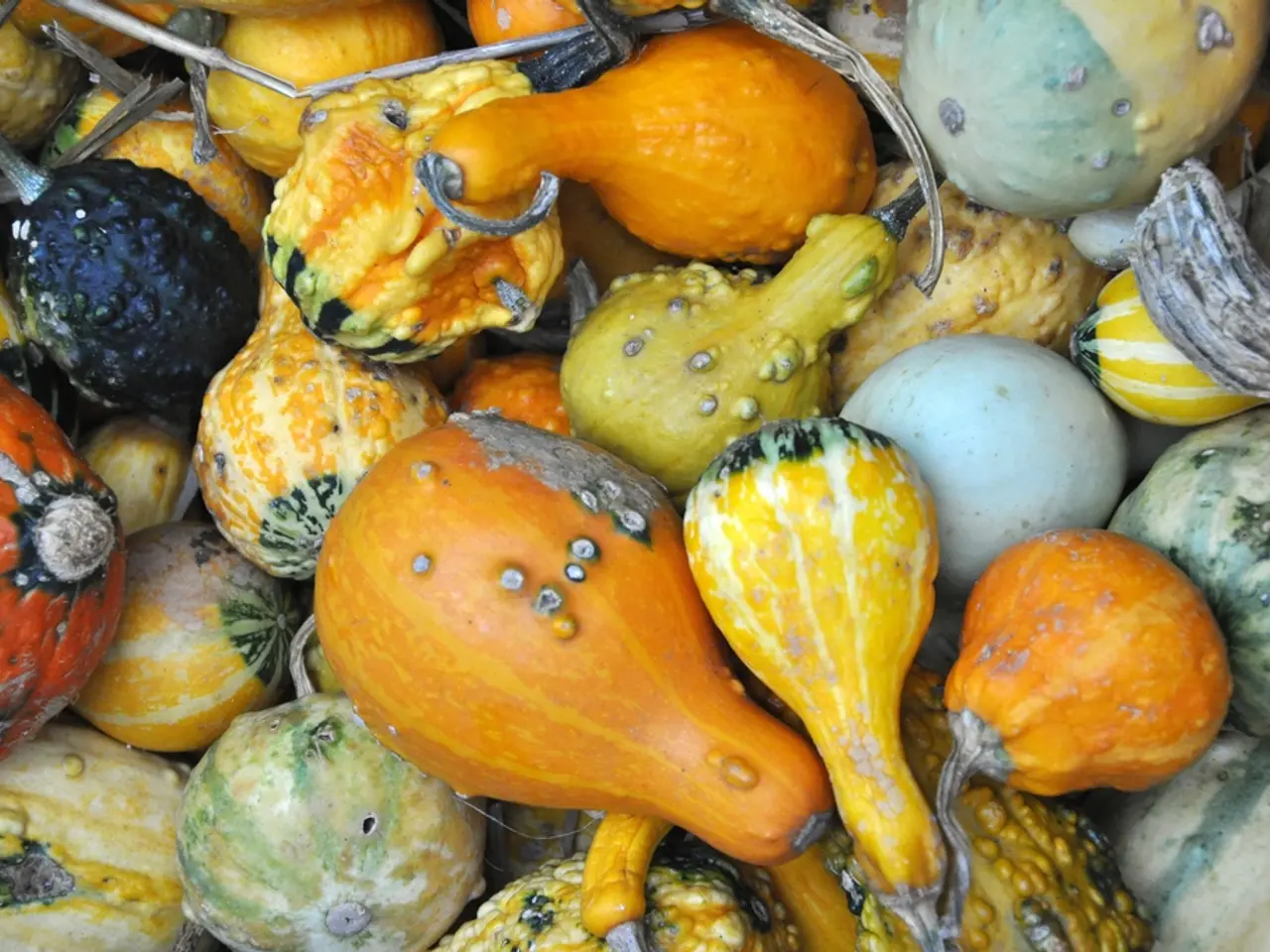Home-Grown Hydrating Foods Supported by Scientific Evidence
Top 12 Hydrating Home-Grown Foods for a Healthy Lifestyle
Staying hydrated is essential for maintaining good health, and certain foods can help boost your water intake while also providing essential nutrients. Here are the top 12 hydrating foods that are easy to grow at home, have over 90% water content, and are backed by scientific research and university health extensions.
- Cucumber
With approximately 95-96% water content, cucumbers are a great source of vitamins K, C, magnesium, potassium, and more. They are simple to grow in gardens or containers and are widely supported by research as highly hydrating.
- Watermelon
This juicy fruit boasts a water content of around 92% and is packed with vitamins A, C, magnesium, lycopene, and potassium. Watermelons are common home-grown treats in the summer and have been well-studied for their hydration effects.
- Cantaloupe (Muskmelon)
Similar to watermelon, cantaloupes contain around 90% water and are rich in vitamins A, C, potassium, and folate. Growing your own melons is a great way to enjoy this hydrating and nutrient-dense fruit.
- Zucchini (Summer Squash)
Zucchini is a versatile vegetable with a water content of about 94%. It is a good source of vitamin C, potassium, and fiber, making it an excellent choice for maintaining hydration and overall wellness.
- Tomato
Tomatoes are a widely grown home garden staple with strong nutritional benefits, including a water content of around 95%. They are rich in vitamins C, K, potassium, and lycopene.
- Celery
Celery, with its high water content of around 90-95%, is a great choice for staying hydrated. It is linked to body cooling and hydration, and it provides fiber, sodium, and potassium. Celery is easily grown at home and is a popular snack option.
- Iceberg Lettuce
Iceberg lettuce, with its high water content of up to 96%, is a great addition to your diet. Although it has fewer nutrients than darker greens, it is still hydrating and easy to cultivate.
- Strawberries
These delicious fruits are around 91-92% water and are packed with vitamin C, antioxidants, and other nutrients. Strawberries are easily grown in containers or garden beds and are a hydrating and nutrient-rich choice.
- Leafy Greens (e.g., Spinach, Kale)
Leafy greens, such as spinach and kale, have a water content of over 90% and are high in vitamins A, C, K, and minerals. They grow well at home and are a great source of hydration and nutrients.
- Peaches
Peaches, although slightly under 90% water content (close to 90%), are a well-known source of hydration and cooling benefits. They are packed with fiber, vitamin C, and potassium and can be home-grown in suitable climates.
- Lemon
Lemons have a water content of around 90% and support cooling and hydration through their electrolyte effect. They are easy to grow in pots or gardens and provide a refreshing and hydrating addition to your diet.
- Onion
Onions, with their water content of around 89-90% (close to 90%), provide body cooling and hydration benefits. They are easily grown at home and are a versatile ingredient in many dishes.
These hydrating, easy-to-grow foods are a great addition to any home garden and can help boost your water intake while providing essential nutrients. Incorporating these foods into your diet can contribute to better overall health and wellness.
- Incorporating organic soil and decorative elements in your home-and-garden could create an inviting and productive environment for growing hydrating foods like cucumbers and watermelons.
- To ensure a healthy-diets, consider integrating a variety of home-grown hydrating foods such as zucchini, tomatoes, and leafy greens in your meals, following the principles of a balanced food-and-drink lifestyle.
- During the process of harvesting these hydrating home-grown fruits and vegetables, remember the importance of proper washing for ensuring food safety and nutritional benefits.
- Growing your own water-rich vegetables and fruits for a healthy-lifestyle can provide a sense of accomplishment and contribute to increased understanding in the science behind health-and-wellness and nutrition.
- A well-maintained garden filled with hydrating plants such as cantaloupes, strawberries, and peaches can offer a variety of health benefits while also contributing to an attractive and inviting decor.
- Instead of purchasing expensive bottled drinks, opt for home-grown hydrating solutions like mouthwatering watermelon juice or cooling cucumber-infused water to quench your thirst and support a healthy-lifestyle.
- Incorporating delicious and hydrating home-grown foods like iceberg lettuce, celery, and onions into your healthy-diets and lifestyle can help promote overall well-being and provide a connection to the natural world.




